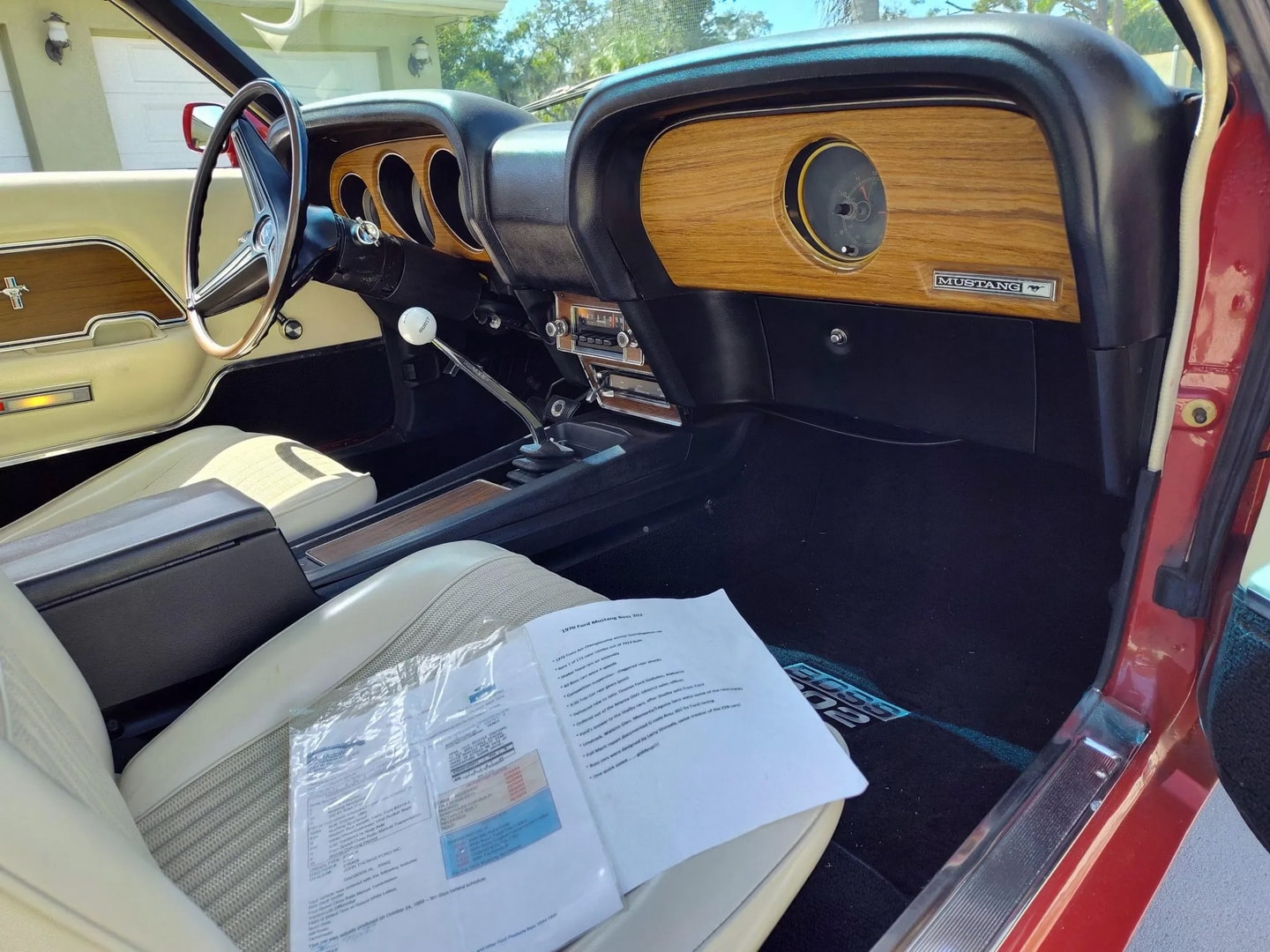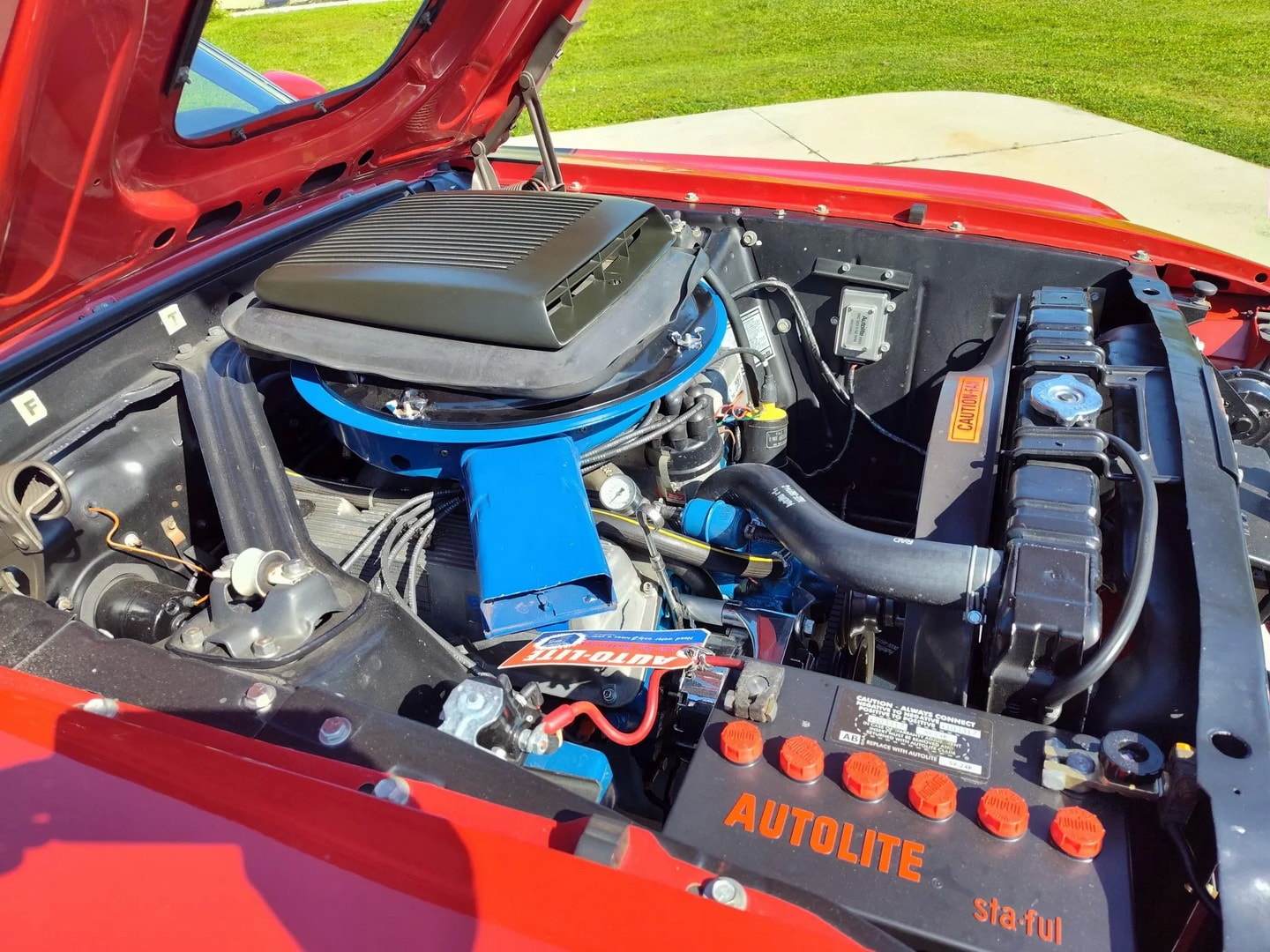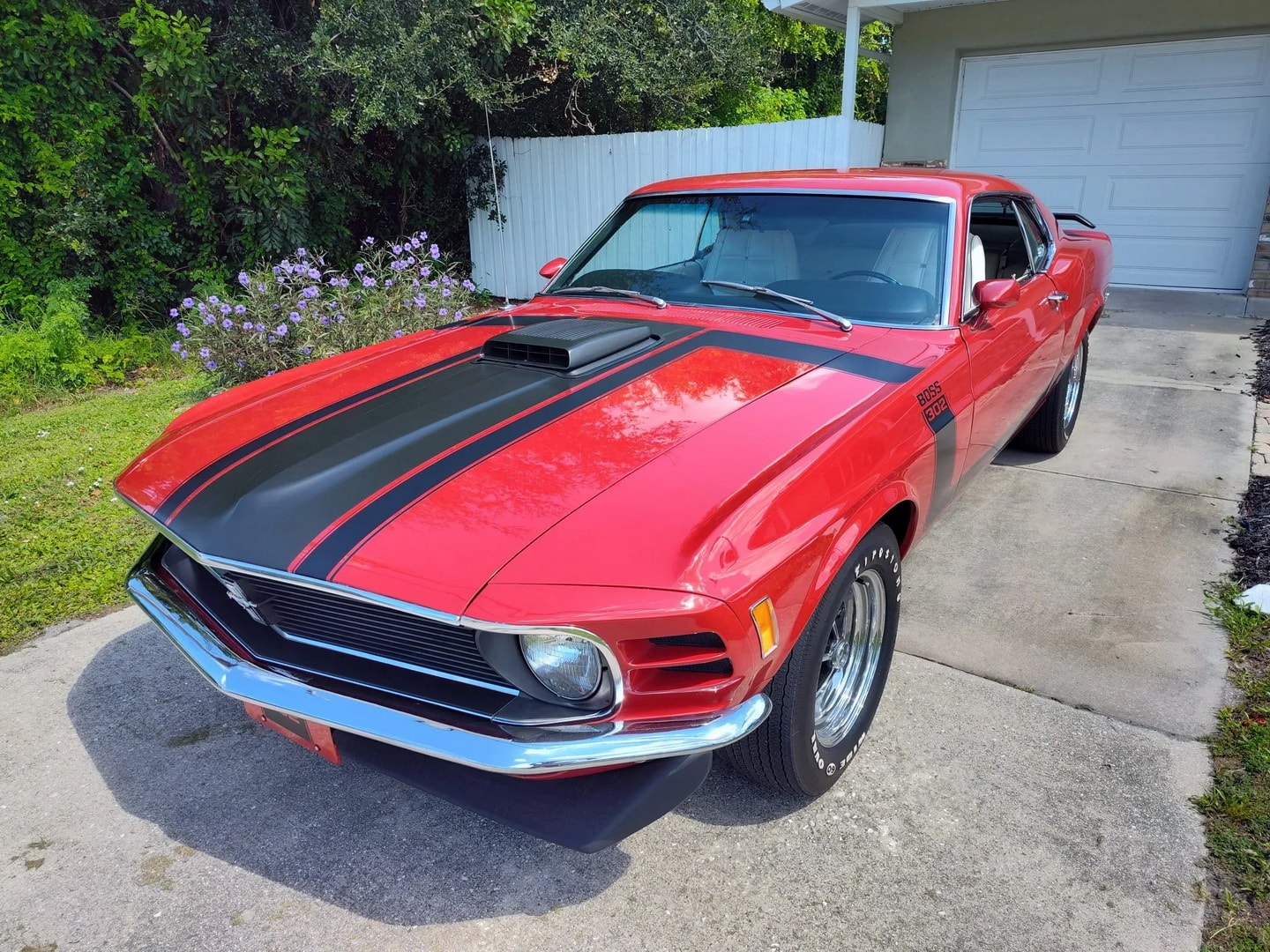A 1970 Ford Mustang Boss 302, once a prized collector’s item, recently failed to meet its reserve price at auction. Despite a well executed refurbishment in 2007, the car’s value was significantly impacted by the replacement of its original Boss 302 engine with a 351 ci Cleveland V8.
While the Mustang’s appearance and performance might be appealing to many enthusiasts, the absence of the iconic Boss 302 engine is a major deterrent for serious collectors. The Boss 302 was a limited-production model, known for its distinctive styling, high-revving V8, and exceptional performance both on the road and the track.

The car’s rarity and historical significance make it a highly sought after collectible, but only when it retains its original engine. This particular Mustang, refinished in red and equipped with all the signature Boss 302 features, including the shaker hood scoop, rear window louvers, and black stripes, would have undoubtedly fetched a higher price if it had maintained its original powertrain.
The interior, featuring white vinyl seats, woodgrain accents, and a three-spoke steering wheel, further enhances its appeal. However, the engine swap ultimately proved to be a deal-breaker for potential buyers. The classic Mustang Boss 302 is a legendary muscle car celebrated for its potent 302 cubic inch V8 engine.
However, this particular example has undergone a modification with a replacement 351 cubic inch Cleveland engine, paired with a Holley four-barrel carburetor and a Mallory distributor. While the 351 Cleveland is theoretically capable of producing more power than the original 302, the owner was recently presented with a $47,250 offer for the car.
Given the historical significance of the Boss 302 and the potential for increased value with an original engine, the question arises: was the owner justified in rejecting the offer? To answer this, it’s essential to consider the factors that contribute to the value of a classic car. The Boss 302’s reputation as a sought-after muscle car is largely due to its original engine configuration.
The 302 V8, with its specific design and performance characteristics, is a key element that defines the Boss 302’s identity. While the 351 Cleveland is a powerful engine in its own right, it lacks the historical significance and desirability of the original 302.
Moreover, the Boss 302’s value is influenced by its condition and provenance. A well-preserved Boss 302 with a documented history and original components is likely to command a higher price than a car with modifications or a less clear lineage.

The owner’s decision to retain the car with the 351 Cleveland engine suggests a belief that the potential for increased value in the future outweighs the immediate financial gain of accepting the offer.
Ultimately, the decision of whether to sell or retain a classic car is a personal one. While the $47,250 offer represents a significant sum, the owner’s assessment of the car’s long-term value and its attachment to the vehicle are crucial factors to consider.
Given the Boss 302’s historical importance and the potential for increased value with an original engine, the owner may have made a prudent decision in rejecting the offer. However, only time will tell if their gamble will pay off.

